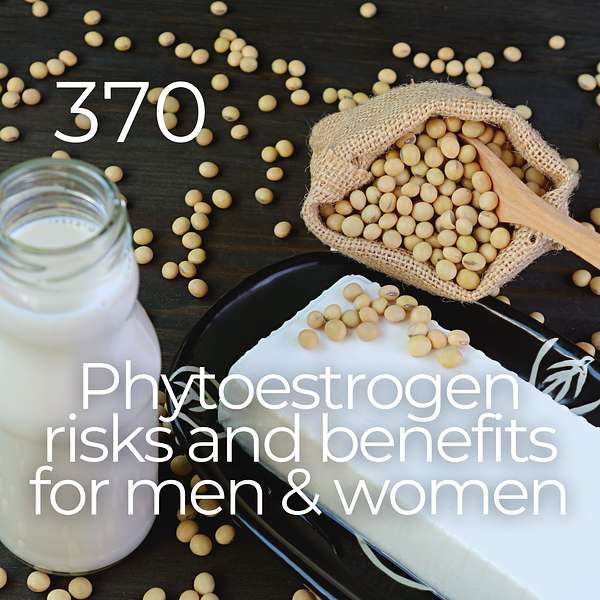
Alter Life
Your perception shapes your reality. Alter Life is about shaking up stale thoughts, letting go of limiting beliefs, and exploring new ways to feel better, think clearer, and live more fully. This podcast dives into the deep connections between mindset, health, and consciousness—helping you thrive in your authenticity. From holistic health and nutrition to personal growth and expanded awareness, we explore what it really means to live well and feel fulfilled.
Alter Life
#370 - Phytoestrogen Risks & Benefits in Both Men & Women
Phytoestrogens = “plant” estrogens.
These compounds attract quite a bit of controversy, almost as much as the lectins, oxalates, phytates, and goitrogens we’ve talked about previously.
Here are direct links to episodes on...
Oxalates - Episode 365
Lectins - Episode 366
Phytates - Episode 368
Goitrogens - Episode 369
First things first. The term “phytoestrogen” is actually a bit of a misnomer. These compounds are actually not “estrogens” but more accurately “estrogen receptor modulators.” This means they can bind to estrogen receptors to elicit a number of different effects.
There are a number of different plant compounds that are classified as “phytoestrogens.” Far and away the most potent of them are the isoflavones like genestein found in soy. Other compounds include lignans, a type of polyphenol highest in flax, stilbenes like resveratrol found in grapes, and coumestans like coumestrol found in Brussel sprouts, spinach, all legumes, and many other foods.
These fancy-named compounds are all, in a word, “phytonutrients.” When we eat these compounds present in our plant foods our bodies, with the help of the microbes in our gut, respond in all sorts of ways. In today’s episode, we do our best to cover the latest science as it relates to the “plant estrogen” compounds in both male and female bodies.
Spoiler alert - phytoestrogen consumption does not cause female reproductive cancer, nor does it cause men to grow “man boobs!”
Episode Highlights
- “Phytoestrogens” could more appropriately be called “estrogen receptor modulators” as they do not promote “estrogenic” activity in the body, but simply bind and change conformation of estrogen receptors
- Isoflavone and lignan compounds are transformed by gut microbes as well as various fermentation methods such as Korean cheonggukjang, Japanese natto, or Thai Thua
- Only about 20-30% of Westerners have the gut bugs to convert isoflavones to that active estrogen modulating compound, equol, compared to ~60% of Asians, but eating more plants foods feeds specific microbes that facilitate the gut fermentation processes.
- Consumption of phytoestrogen rich foods can reduce menopausal symptoms and risk of cardiovascular disease risk, obesity, diabetes, dementia and various cancers
- There is ZERO evidence to suggest that eating phytoestrogen rich foods interferes with male hormones
Links to more good stuff
- Work With Me - www.alter.health
- GREEN FORCE! - www.visfoods.co (use the code AlterLife for $10 off)
- Check out my favorite products - www.alter.health/products